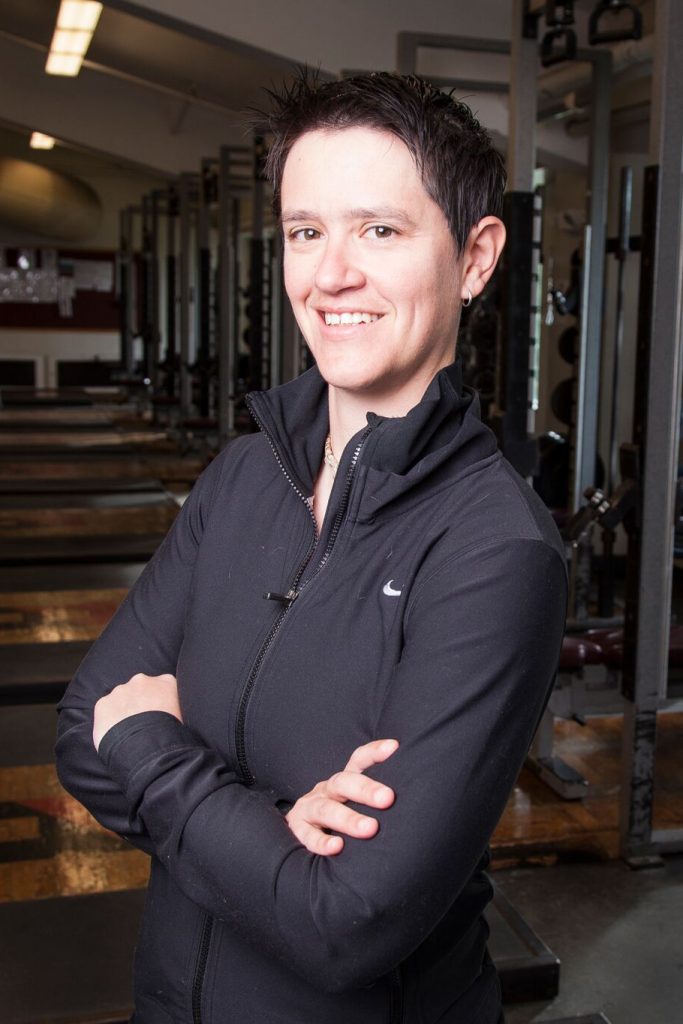Today’s guest post comes courtesy of TG.com regular, and my 1-day-per-week training partner1, Justin Kompf.
Listening, I mean really listening, is a learned skill and takes a lot of (purposeful) practice to master. Those who are able to so, however, are often the ones who separate themselves from the masses in the fitness industry.
This is a quick read, but worth your time

The Subtle Art of Shutting Up and Listening
I take a deep breath before I knock on my advisor’s office door.
“Keep it together Justin, whatever you do don’t cry”
I take a seat in his office and immediately start crying. We don’t need to go into details, but I was in a tough place.
Fine, my girlfriend broke up with me and I had no idea where I was going with my career. Okay, great, sharing feelings, my favorite.
Can we move on?
I’m sitting in his office, which mind you is surrounded by other offices, just balling.
But as I’m talking, I’m starting to feel better.
Why?
Well, here’s what he was doing. Just listening, providing me with enough silence to think thoughts and say them out loud. He asked me open ended questions without giving advice. That was special for me because up until then I don’t recall ever really being heard like that.
Of course, there are friends I could say anything to, but I never really had this kind of experience before. This experience profoundly changed the way I interacted with people and even changed my approach on coaching.
Empathetic Listening
The other day in a lecture I hammered home the importance of forming relationships with the people you coach.
Given enough time in anyone’s life, something stressful (which is not necessarily bad) or crappy is bound to happen with different magnitudes of crappiness.
Sometimes I like to think of God as Donkey Kong from Nintendo just throwing barrels filled with crap (like bad or stressful events not actual poop) at people. It’s not a bad thing, that’s just life and it happens to everyone but it’s nice when you have someone to help you work through it.
Low levels of crappiness might be failing to get a promotion at work whereas high levels of crappiness might mean going through a divorce or a death in the family.
Many of the clients I train I’m close with, especially those close in age to me. I’m sure lots of other trainers are the same. Over time, trust forms and when things that bother them come up, they know I’ll listen.
This isn’t to say that a lift should turn into a therapy session, because it shouldn’t. But imagine how much a client would appreciate it when something came up and you just said:
“Hey, it sounds like you’re going through some tough stuff, let’s grab a coffee after the session”
How to Do This Empathetic Listening Thing
I don’t have set in stone guidelines on how to accomplish this, but I know when I’ve done it the right way and I know when I’ve failed.
I think one of the biggest issues people have in conversations is that they wait for their turn to talk. They have already concluded what they are going to say next even before the person in front of them has finished talking.
Yes Karen2, you’re guilty of this so pay close attention.
As soon as you’re thinking about what you are going to say next, you’re not fully engaged with the person, so that means you’re not listening.
Side Note: This is also super important for a successful initial consultation with a client if you want to truly understand their goals and why their goals are important.
If you’re going to be a good listener, you need to suspend your thoughts.
Good listeners don’t jump to give advice or relate their experiences to the person in front of them. If you feel like you have something that the person can relate to, try saying:
“You know, everyone’s experience is different, and I don’t want to pretend like we’ve gone through the same thing, but I’ve got a story that I think you might relate to.”
People don’t always talk to get advice back.
They just want to talk because things are tough, and they want to get it off their chest. If they want advice, they’ll probably say “what do you think I should do?”
The last thing that I know for sure is that if you want to be a great listener you need to put your phone down.
All the incredible memes will still be there when your conversation is over.
The Subtle Art of Shutting Up
Listen…
Listening is incredibly important. Yea, sometimes it can be just about as comfortable as being single for the third year in a row at your families Thanksgiving get together.
Right…
But in order to be a good listener, you need to shut up.
Something great happens when a person feels accepted and can speak their mind. You might find out way more about the person you are working with, whether it’s about their goals or about their life, by saying nothing.
Just like lifting, writing, or slipping high brow poop jokes into casual conversations with your highly successful clients, listening is a skill that needs to be practiced.
So, I would encourage all of you to go out their and in the appropriate times, just shut up.
About the Author
Justin Kompf is doctoral student studying exercise and health sciences. He is a personal trainer in Boston at CLIENTEL3.








